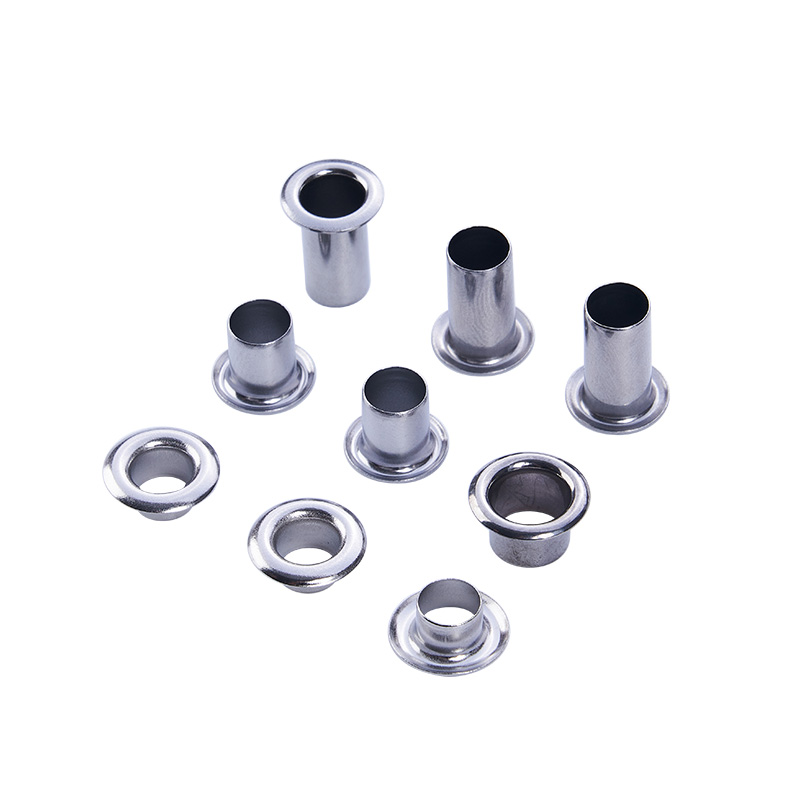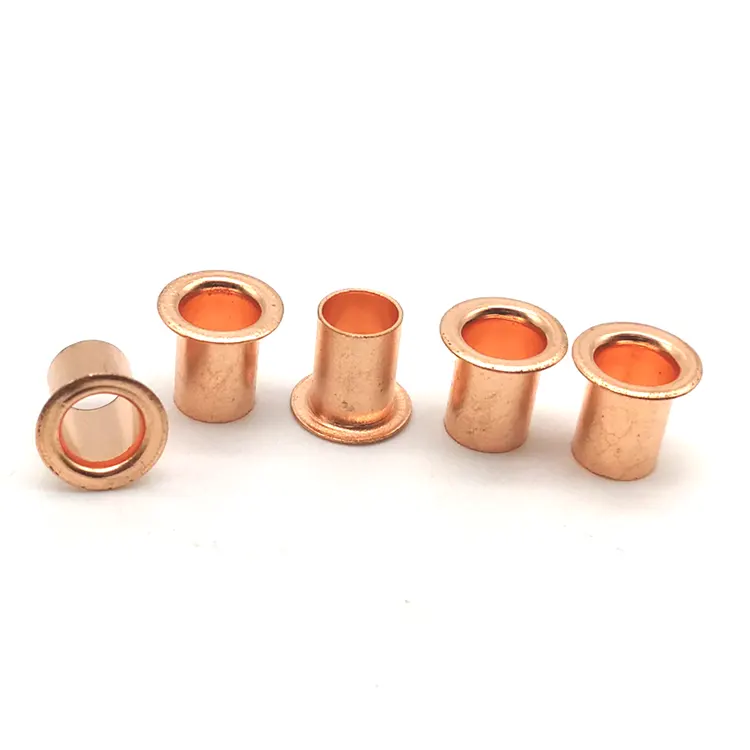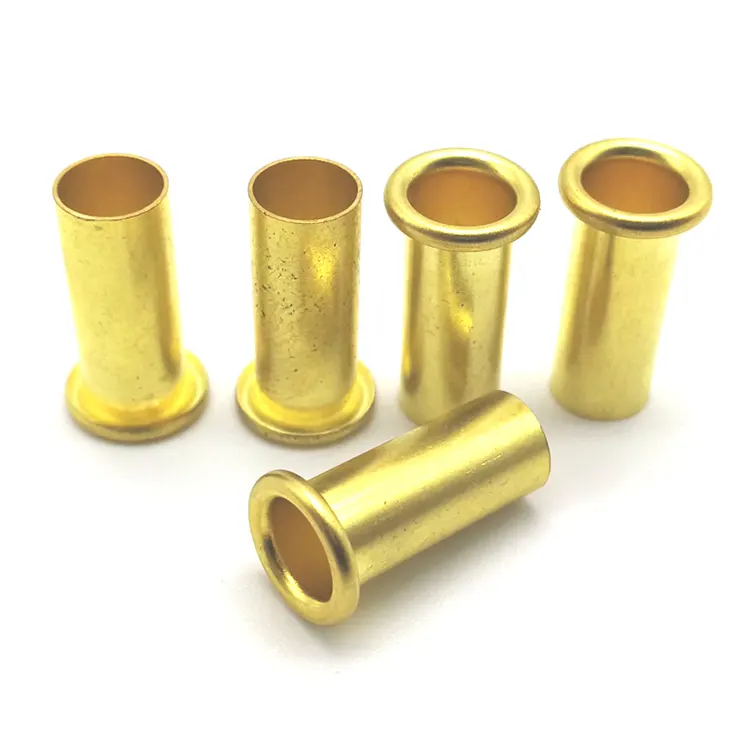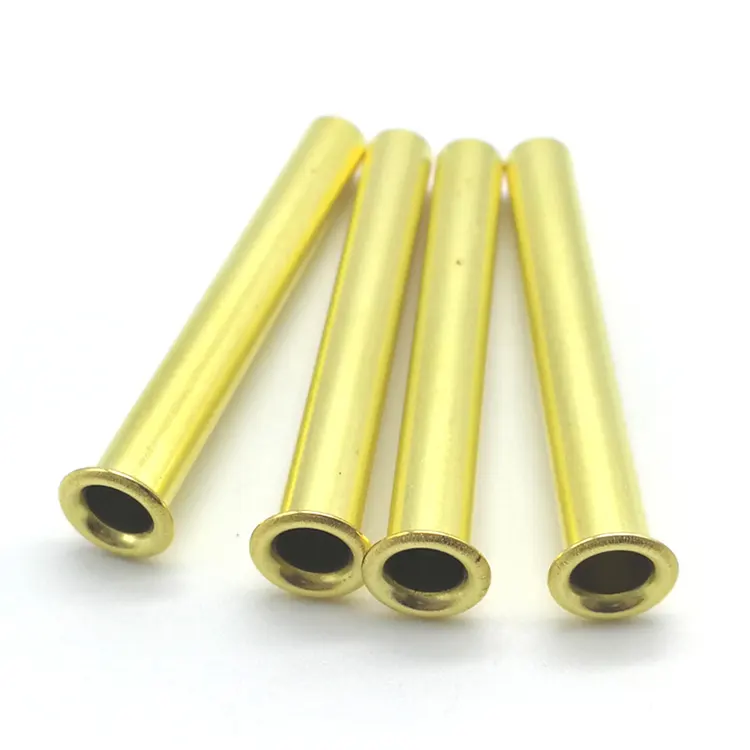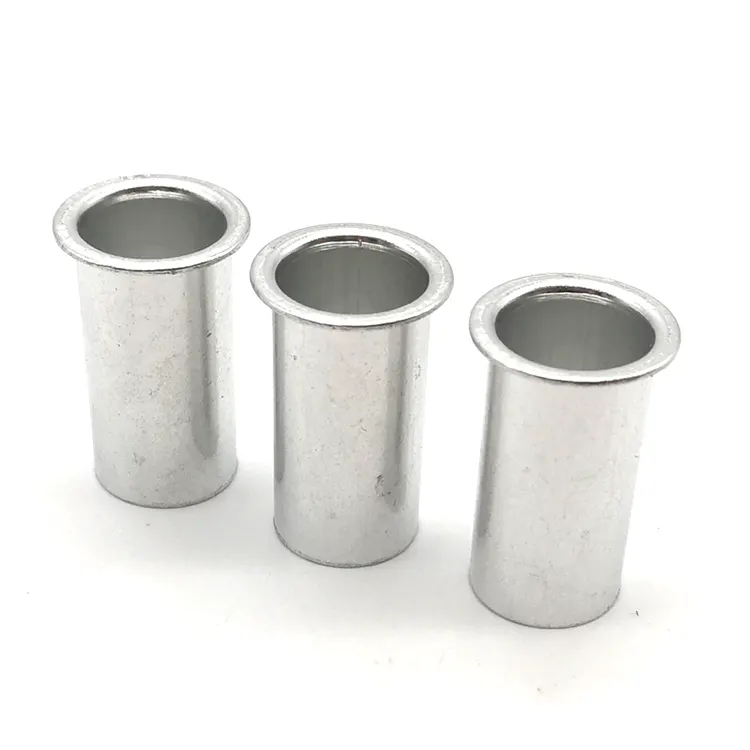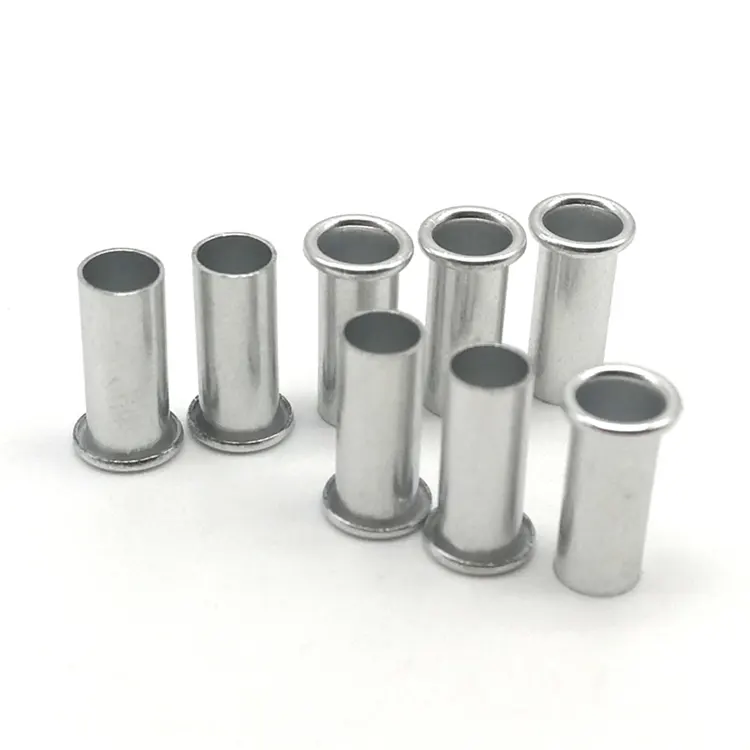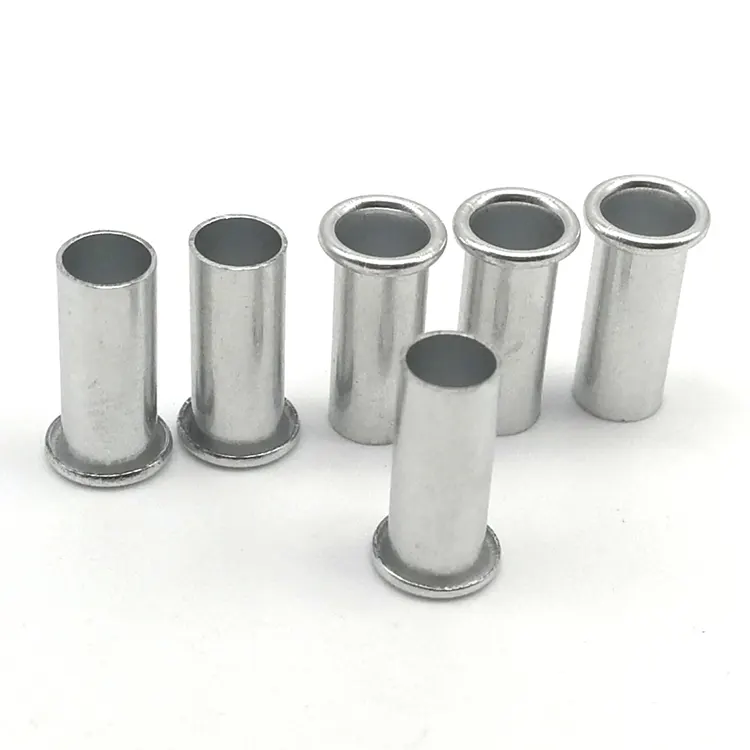Full Tubular Rivets
As one of professional high quality Full Tubular Rivets manufacturer, you can rest assured to buy Full Tubular Rivets from Notin and we will offer you the best after-sale service and timely delivery.
Full tubular rivets are also called as hollow rivets or tubular rivets, they are a common mechanical fastener, primarily used in applications requiring lightweighting or ventilation. Their structural characteristics are a completely hollow center with heads at each end, achieving connection through plastic deformation. Widely used in electronics, automotive manufacturing, aerospace, and other fields, they are favored for their unique structural design.
What is a hollow rivet?
A full tubular rivet consists of a shank and a head. The shank has a through hole in the center, and the head is typically round or oval. During installation, the rivet is inserted through the materials to be joined, and the tail is expanded using a specialized tool to form another head, securing the materials together. Because of the hollow center, full tubular rivets maintain ventilation or fluid conduction after connection, which is their primary difference from solid rivets.
What materials can full tubular rivets be made of? What are the characteristics of different materials?
full tubular rivets are made from a variety of materials, with aluminum alloy, stainless steel, and copper being common.
Aluminum tubular rivets are lightweight and corrosion-resistant, making them suitable for electronic products and lightweight structures. They are the most cost-effective rivets.
Stainless steel tubular rivets are strong and heat-resistant, and are often used in automobiles and industrial equipment. They are more expensive than aluminum hollow rivets.
Brass tubular rivets or copper tubular rivets have good conductivity and are mostly used for electrical connections. Their disadvantage is that they are relatively expensive.
When selecting materials, factors such as the use environment, stress conditions, and cost should be considered.
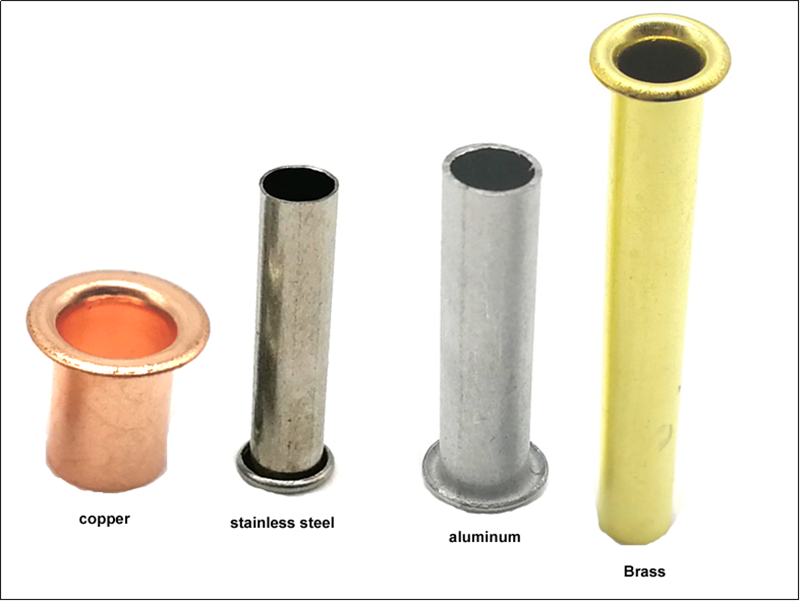
Installation method of full tubular rivets
Special tools are required to install hollow rivets, such as manual riveting machines or fully automatic assembly machines.
The operation steps are as follows:
(1) Drill a hole in the material to be connected, with the hole diameter slightly larger than the rivet diameter.
(2) Insert the rivet into the hole, ensuring that the head is close to the surface of the material.
(3) Align the rivet hole with the matching punch (the punch is installed on the riveting machine). (4) Shake the riveting machine so that the tail of the rivet is impacted by external force and curls up, forming the same arc as the head, thereby achieving the fastening function.
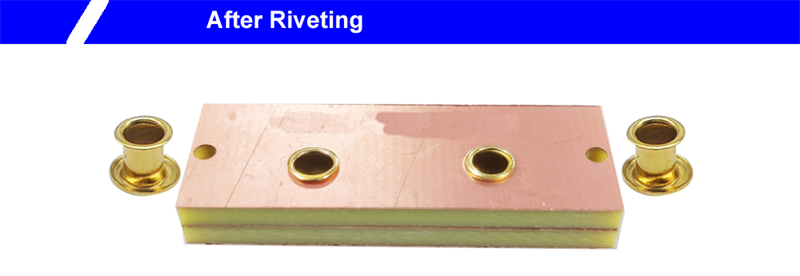
Advantages of Full Tubular Rivets
(1) Light weight: The hollow structure reduces the amount of material used and is suitable for weight-sensitive applications.
(2) Good air permeability: The through hole in the middle can be used for ventilation or diversion to avoid sealing problems.
(3) Easy installation: Only one-side operation is required, which is suitable for narrow spaces or occasions where the back cannot be accessed.
(4) Low cost: Compared with welding or bolting, the riveting process is simple, saving time and manpower.
Disadvantages of Full Tubular Rivets
(1) Limited strength: The hollow structure leads to weak tensile and shear resistance, which is not suitable for high-load scenarios.
(2) Non-removable: Once installed, the rivet is usually not reusable, and disassembly will damage the connection.
(3) Requirements for material thickness: Materials that are too thin or too thick may affect the riveting effect.
What are the main applications of hollow rivets?
(1) Electronic products: such as computer cases, radiators, etc., taking advantage of their lightweight and air permeability.
(2) Automotive manufacturing: used for non-load-bearing parts such as interior panels and wiring harness fixings.
(3) Aerospace: reduce weight while meeting some ventilation needs.
(4) Furniture assembly: connect metal or plastic parts and simplify the installation process.
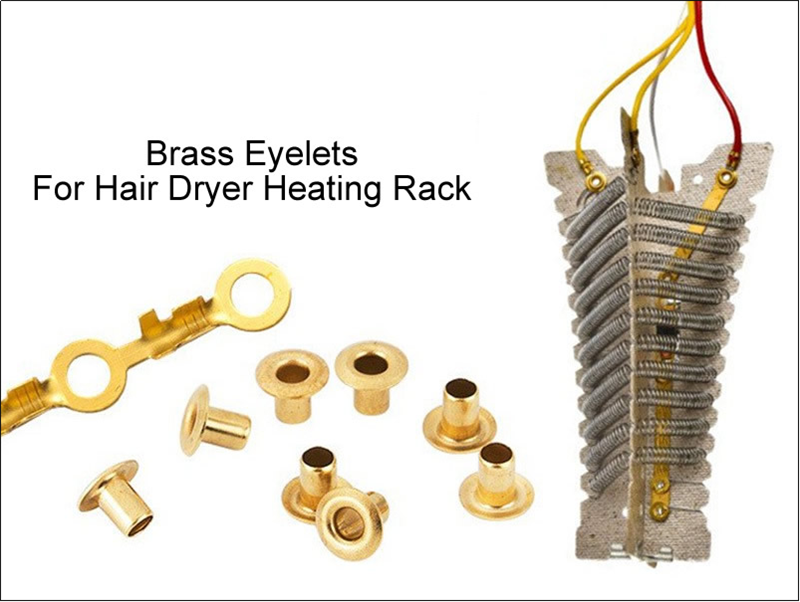
Comparison between hollow rivets and other rivets
(1) Compared with solid rivets: full tubular rivets are lighter and breathable, but have lower strength.
(2) Compared with semi-tubular rivets: the tail of semi-tubular rivets is partially hollow, with slightly higher strength, but the ventilation is not as good as full hollow rivets.
(3) Compared with blind rivets: the mandrel of blind rivets remains after installation, while the mandrel of full hollow rivets is completely detached, making the connection neater.
Suggestions for purchasing full tubular rivets
(1) Select rivets of appropriate length according to the thickness of the material to ensure that they can fully expand after installation.
(2) Consider the use environment. For example, corrosion-resistant or high-temperature resistant materials should be selected for humid or high-temperature conditions.
(3) Before purchasing in bulk, you can try it out first to confirm the riveting effect and tool compatibility.
Maintenance and precautions for full tubular rivets
(1) Avoid excessive force during installation to prevent rivet deformation or material damage.
(2) Regularly check the connection parts and replace them in time if they are loose or rusted.
(3) Keep them away from moisture during storage to prevent oxidation of the rivet surface that affects their use.
As a practical connector, full tubular rivets have irreplaceable advantages in specific scenarios. Understanding their characteristics and application methods will help you choose and use them reasonably in actual work, improving work efficiency and connection quality.
- View as
Copper Hollow Rivets
Copper hollow rivets is a common fastener, they are made from high-quality copper, which offers excellent electrical and thermal conductivity and corrosion resistance. In humid environments, an oxide film naturally forms on the copper surface, providing some corrosion protection and extending the life of the rivet. However, copper's relatively low hardness makes it unsuitable for withstanding high mechanical loads. Contact Nuote Metals to know more about copper hollow rivets.
Read MoreSend InquiryBrass Tube Rivets
brass tube rivets are hollow rivets made of brass, typically cylindrical in shape with a central hole. Their primary function is to connect two or more components through riveting. They are often used in applications requiring lightweight, electrical conductivity, or corrosion resistance. Brass is a copper-zinc alloy, it has excellent mechanical properties and corrosion resistance, making it suitable for these fasteners. Nuote Metals is a proffesional manufacturer of brass tube rivets.
Read MoreSend InquiryBrass Hollow Rivets
Brass hollow rivets are generally made of brass tubes. Brass tubes are hard, not easy to corrode, and resistant to high temperature and high pressure. They can be used in a variety of environments. At the same time, they are easier to bend, twist, crack, and break than ordinary metals. Nuote Metals is a professional manufacturer of brass hollow rivets in China, we are in this industry for more than 10 years.
Read MoreSend InquiryAluminum Tube Rivets
Aluminum tube rivets are made from high-strength aluminum alloy, boasting remarkable lightweight properties, with a density only one-third that of steel rivets. Furthermore, this material offers excellent corrosion resistance, effectively resisting erosion from atmospheric and seawater environments. The unique hollow structure design further reduces overall weight while maintaining strength.Aluminum tube rivets made by Nuote Metals are high in precision, feel free to send us your inquiry.
Read MoreSend InquiryAluminium Pipe Rivets
Nuote Metals is a Aluminium Pipe Rivets manufactuer in China. Aluminum pipe rivets primarily consist of a rivet head and a shank. The shank is a hollow cylinder typically made from aluminum alloys such as 5052 or 6061, which offer excellent ductility and corrosion resistance. This aluminum alloy contributes to the rivet's overall lightness, making it suitable for weight-sensitive applications. Furthermore, the aluminum's natural oxide layer effectively prevents rust from environmental factors, extending its service life.
Read MoreSend InquiryAluminum Holllow Rivets
Aluminum Holllow Rivets is a common fastener, they are widely used in many fields due to their light weight, corrosion resistance and good electrical conductivity. Nuote Metals produces and sells aluminium hollow rivets in China, we have more than 10 years working experience in this industry.
Read MoreSend Inquiry
